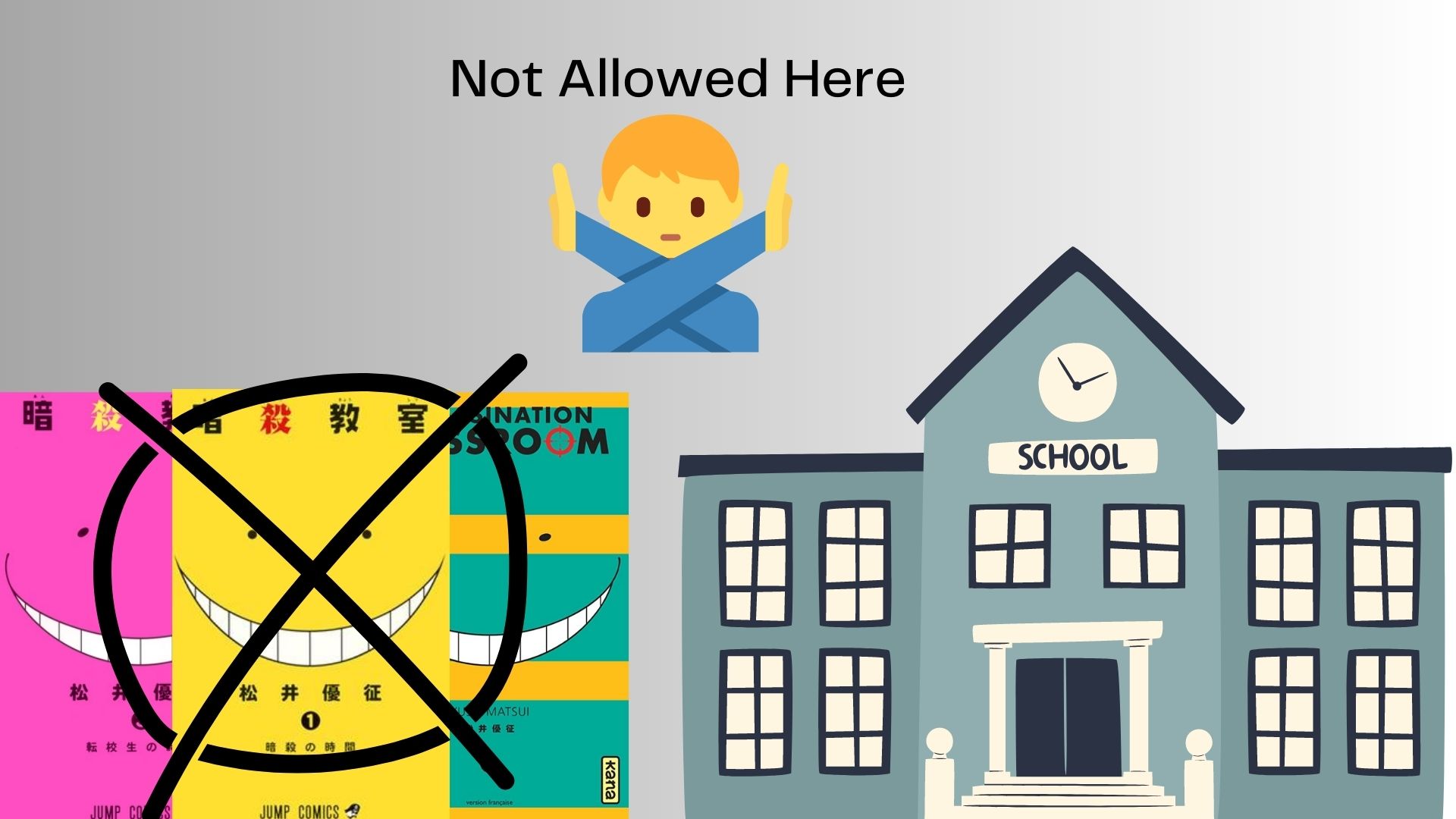Assassination Classroom has been banned from schools. Art By Jasmine Sanchez.
By Jasmine Sanchez Staff Reporter
As news broke out that the popular manga series “Assassination Classroom” was next in line to be challenged in schools, I was left speechless. I was, at the time, rereading the series and could not fathom what the thought process was to contest such work. The series holds a dear place in my heart. It was one of my favorites growing up and learning parents and some organizations have declared it is “inappropriate” to be allowed in schools is just baffling.
I initially read the manga when I was in middle school, about 13 years old, so it makes sense that I have a deep love for the series. However, as I was reading the aspects that raised concerns for these parents, I was still confused as to how they came to this conclusion. I was having trouble pinpointing these scenes indicated to be unsuitable for children despite having reached the ninth volume of the series at that point in time.
“Assassination Classroom” is a series that follows a class of lovable characters generalized as “misfits” and “failures” by the administration of their prestigious school and their peers. The class is tasked by the government to covertly assassinate their shady octopus-like teacher, Koro-sensei, who is planning to destroy the world. As they work to carry out their duty, the students are taught valuable life lessons by Koro-sensei along the way.
One of the main issues that I’ve heard being tossed around is that the series perpetuates violence towards teachers, completely ignoring the fact that the guns in the manga are the equivalent of BB guns and the knives are plastic. These “weapons” aren’t meant to harm humans, only the yellow octopus whose plan is to destroy the world. Not to mention, the students are professionally trained on how to handle these devices.
Another point often brought up is that it’s unrealistic as no real government is offering to pay around 73 million dollars to students to assassinate their teacher. In the show, the students did not wake up one day and decided to attempt to kill their teacher, they were offered a chance to save the world and took it.
After learning so much from Koro-sensei, the students have a change of heart and decide to save him. They realized through his teachings that they didn’t want to lose the best teacher they had and were willing to give up life-changing money to spend more time with him.
This brings up the point that the series is about more than just attempting to murder Koro-sensei. He takes the time to recognize each of his student’s strengths and weaknesses and wants them to see a future for themselves despite constantly being harassed by the other students.
Including this aspect allows the reader to appreciate teachers who genuinely care for their students and encourages them to create bonds with those they look up to.
Even at the end of the series, the students rush to be with Koro-sensei in his final moments and it is during this time that he takes one last roll call as his students weep. Despite how the story began, they don’t want him to die nor does the reader.
To say the manga breeds violence towards teachers is a disgrace to the themes and context of the story. Violence exists because people choose to commit violent acts towards others. There is no one pulling the strings. There is no boogie man hiding behind a mask. There are only people who want to hurt others. Words on a page do not compel people to be violent, especially not those in “Assassination Classroom” which emphasizes student-teacher bonds.
Frankly, the timing of the ban feels a bit convenient. There is an epidemic of school shootings and a rise in violence towards teachers. “Assassination Classroom” is, like many other forms of media before it, used as a smoke screen to distract from the real issues at hand. The manga series is only another placeholder to shoulder the blame.

